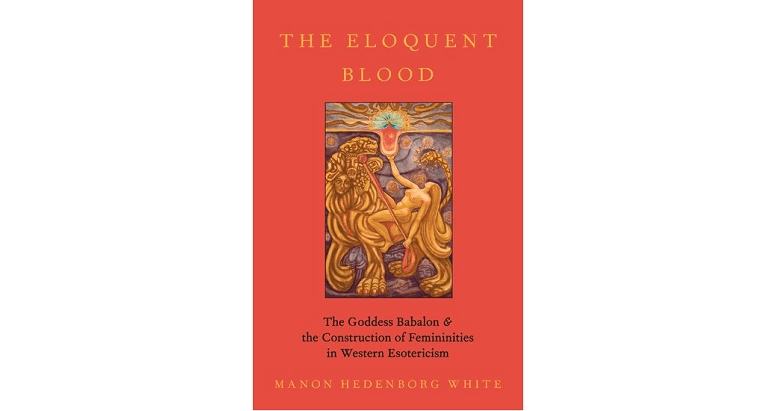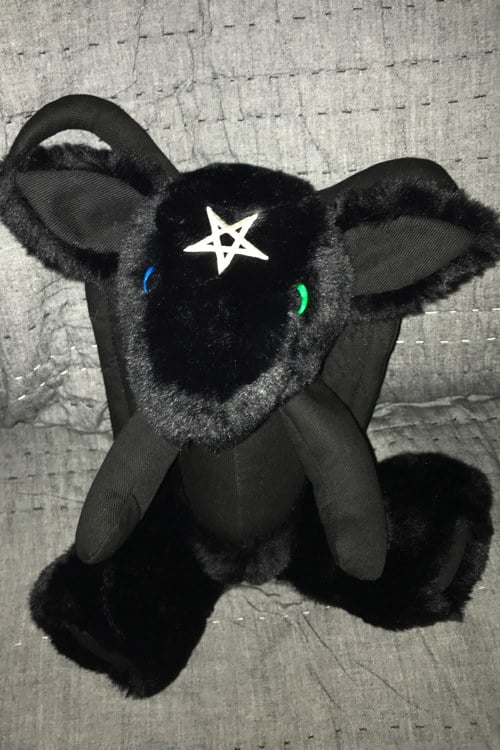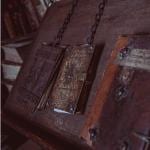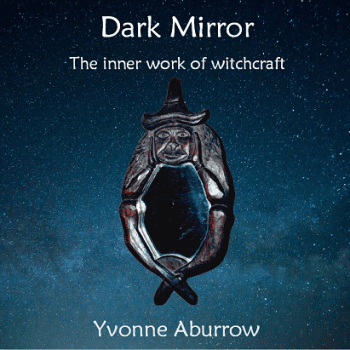Hello, beautiful creatures. Let’s not bury the lede: The Eloquent Blood by Manon Hedenborg White is the most important book on Paganism, esoteric spirituality, and the occult to be published in the past twenty years.
I realize that’s a bold claim. It’s certainly an arguable claim. However, I stand by it, and I’ll explain why in a bit. We can all check back in twenty years to see if I was right. In the meantime, if you have any kind of serious interest in the intersection of magic, Paganism, and/or polytheism with gender, philosophy, religion, and other artifacts of culture, you owe it to yourself to pick up a copy of Dr. White’s book at your earliest possible convenience.

The second issue, which I hesitate to mention, is one of accessibility. The Eloquent Blood is advanced material, a doctoral thesis written primarily for an academic audience, with both the tone and the sheer density of the material that implies. We need look no further than the book’s front cover, where we’re greeted by the subtitle “The Goddess Babalon and the Construction of Femininities in Western Esotericism,” to get a sense of the kind of writing and thinking within the covers. Turning to the table of contents, the reader is met by chapters titled “Divine Women, Femmes, and Whores: The Theorization of Multiple Femininities,” “Yielding Peaches and Women with Whips: Babalon, Crowley, and Magical Systematization 1911-1947,” “‘It All Goes in the Cup’: Receptivity and Unstable Polarities in the Contemporary Babalon Discourse,” and “Inhabiting the Uninhibited: Babalon, Sexual Politics, and the Liberation of the Desiring Feminine Subject.” Depending on your background and preferences, you might greet those titles with a glazed stare, a furrowed brow, or a gasp of delight. However, I promise that readers who push on will find the reward more than worth the effort. Dr. White’s writing is lucid and robust, both an aesthetic pleasure and an intellectual treat to read. As the saying goes, she knows her onions, and she’s more than happy to dice them in full view of the camera.
That’s all well and good, you might say, but garbled metaphors aside, why do I claim it’s the most important book of the past two decades in our field?
Because, dear readers, White pays her subject the profound honor of taking it seriously and on its own terms, making it a profoundly well-informed bridge between the worlds of academia and magical practice, and the single best explication of modern esoteric theology and praxis I’ve seen since Ronald Hutton’s The Triumph of the Moon. On one level, The Eloquent Blood is an overview of the role the goddess Babalon in Aleister Crowley’s religio-magical philosophy of Thelema, and an analysis of the ways in which she is venerated both within and beyond strictly Thelemic traditions. White spends considerable time and effort detailing how Crowley and his various disciples and partners—Leah Hirsig, Jack Parsons, Kenneth Grant, and others—worked with Babalon. It’s fascinating material, and if you’re not familiar with the history, much of it is essential for an understanding the roots of the modern Pagan movement. For me, the book truly comes into its own in the second half, where White uses the historical as a basis for delving into the contemporary and exploring the various ways in which modern devotees are enchanted, inspired, and enraptured by Babalon. From there, she examines the broader ramifications of this peculiarly flavor of goddess worship for sexuality, gender, queerness, occult practice, and culture, all without losing sight of the nature of Babalon as an esoteric, outsider goddess who speaks to so many, each in the voice they most need to hear.
“The Babalon discourse,” White writes in the book’s closing, “is an erotic discourse; a (queerly) feminine discourse; a hopeful, monstrous discourse messy with the blood of tender violence.” The Eloquent Blood is a brilliant contribution to that discourse, a spectacle of dark wonders and profound wisdom which sets an impressively high bar for any future continuation of our conversations about goddesses, feminism, femininities, and magic.
The Eloquent Blood: The Goddess Babalon and the Construction of Femininities in Western Esotericism by Manon Hedenborg White is available now from Oxford University Press.
[NB: I purchased a copy of this book for myself, and have received no compensation from the publisher for this review.]
Until next time, dear ones, read well. ♥

















